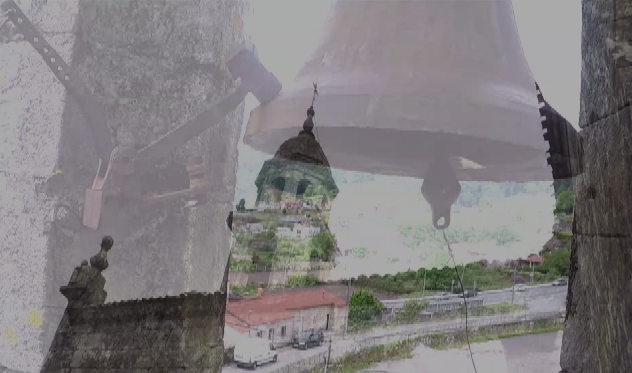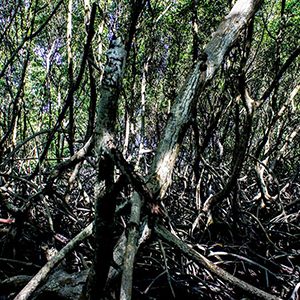

How can immersive performative experiences in different landscapes, climates, and cultures contribute to paradigmatic changes in our ways of living, inhabiting, and thinking about the world? What is the political dimension of these aesthetic actions? How can we share the potency of experiences that emerge from the relations between body, landscape, climate, and time? Bearing these questions in mind in the search for possible directions, from December 2016 to November 2017, the city of Montreal became our territory for research and creation, during which the experience of living in this climate and landscape turned into a performative act. Departing from a performative body immersed in a specific territory, within a climate and landscape never experienced before, we launched ourselves into the investigation of contributions from performance as research to the interplay between arts, technosciences, and climate change. As Tetsuro Watsuji (2009) wrote, "Climate and Landscape are the objectification moment of human subjectivity." For the Japanese thinker, living in a given climate and landscape drives us to create tools, techniques, and technologies to overcome their action over our bodies, but it is from experiencing that we, human beings, can figure ourselves out and create ways to live in society. Something that becomes urgent when faced with the crises and catastrophes we are crossing.
Performative Maps
Performative Maps is a piece that investigates poetically, politically, and aesthetically, how immersive performative experiences in diverse landscapes, climates, and cultures, can contribute to triggering urgent transformations in the distinct ways of inhabiting a reality that is full of crises and catastrophes unleashed by climate change. Held from January to March 2017 on Montreal island, during the harsh Canadian winter, Performative Maps departs from an experience-body. An intensity-body. An intervention-body. A body in search of the emergence of possible directions, questions, procedures, and actions that, once unfolded into images, texts, and creations, will transform, however briefly, our ways of perceiving and making worlds.
Video screened: Mostra Cuerpo y Imagénes Centro Cultural Paco Urondo Buenos Aires Argentina|2017 Museo Nacional de las Culturas del Mundo México City|México|2018.
Facing Gaia
Regarding the impacts of climate change on contemporary society, and betting that the arts - with their ability to develop new tools and strategies - can destabilize conventional human perspectives regarding nature and its non-human agents, Facing Gaia is the outcome of immersive performative research conducted at Park Jarry in Montreal. This work proposes a discussion around the interrelations between landscape, environment, machines, human intervention, and climate alterations.

Photography | Diptych - exhibited at "Art in the Age of the Anthropocene" Kunst Gallery| | Yorshire | UK | 2018
In Transitory Landscapes, our actions aimed to produce enfoldings between performative practice, methodological procedures, and the contributions of the art field to the challenges of the Anthropocene, with a focus on climate change. In this project, the concept of Territory is also unfolded, proposing a dialogue between the geopolitical notion of Territory and its application in the arts. The territory is thus conceived as a dynamic system composed of time-temporality, and space-spatiality, comprising a broad range of individual, local and global interactions. Territories are bodies constructed by the interaction between humans and non-humans in the handling of natural resources and processes, as well as social, political, subjective, and sensorial processes. Territories are complex systems dialogically constituted by the three ecologies: the environment, social relations, and subjectivity, as pointed out by Felix Guattari.
Video screened at Laser Talks-Fortaleza | Curadoria Clarissa Ribeiro Galeria de Artes- Universidade de Fortaleza - Fortaleza-UNIFOR Fortaleza | Ceará | Brazil, 2019.
Inspired by Isabelle Stingers book In Catastrophic Times, where the philosopher reflects on our powerlessness feeling when confronted by catastrophes caused by climate change and their resulting social impacts, Intervening requires a certain briefness
Read More
In Borders investigates and discusses poetically the cultural and linguistic differences between geographically and politically delimited territories, Portugal-Galicia|Portuguese-Galician
Read More
In The Three Ecologies (1989), Félix Guattari cautioned us that genuine response to the ecological crisis would be directly related to a political, social, and cultural revolution, one that should happen on a planetary scale.
Read More